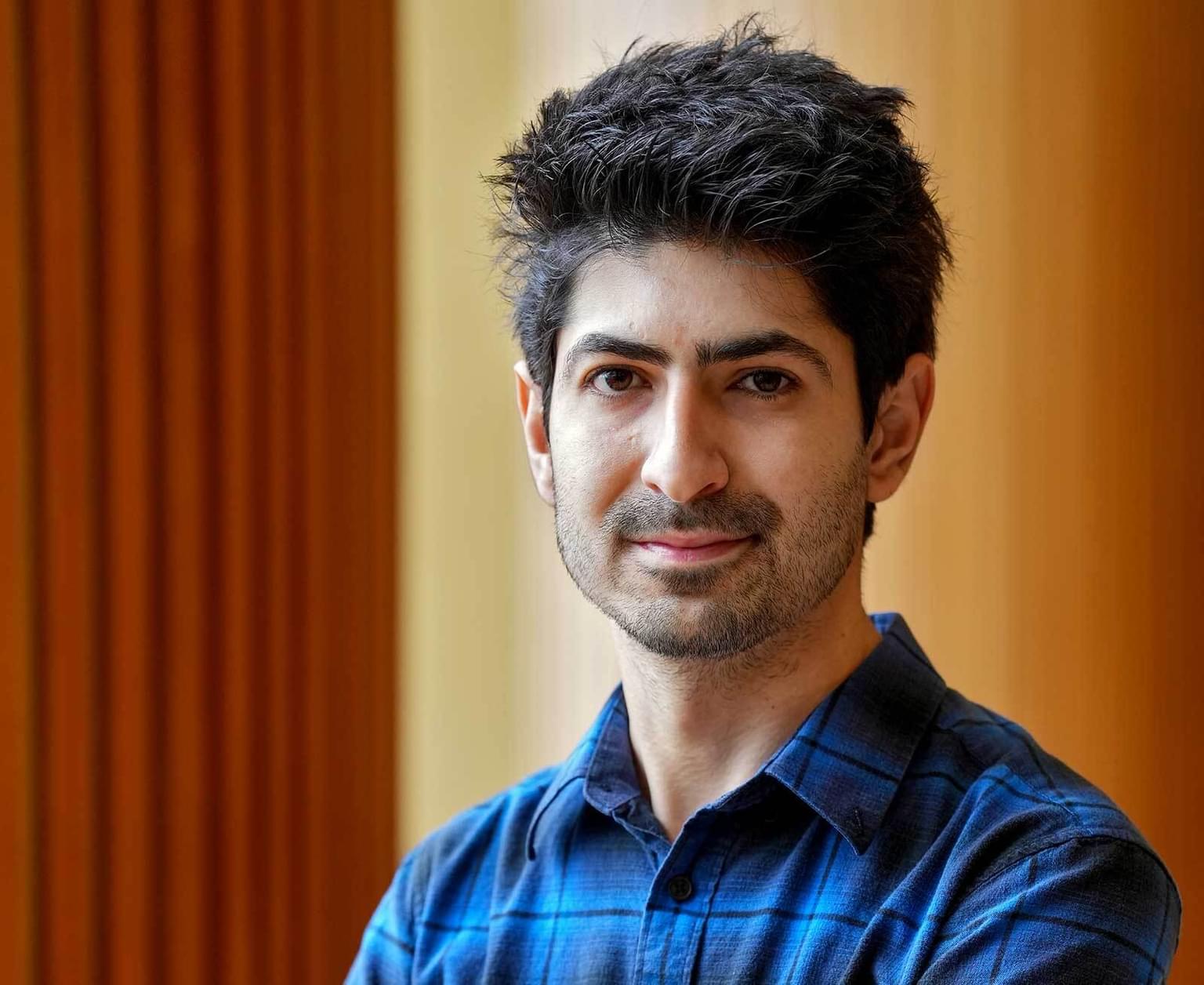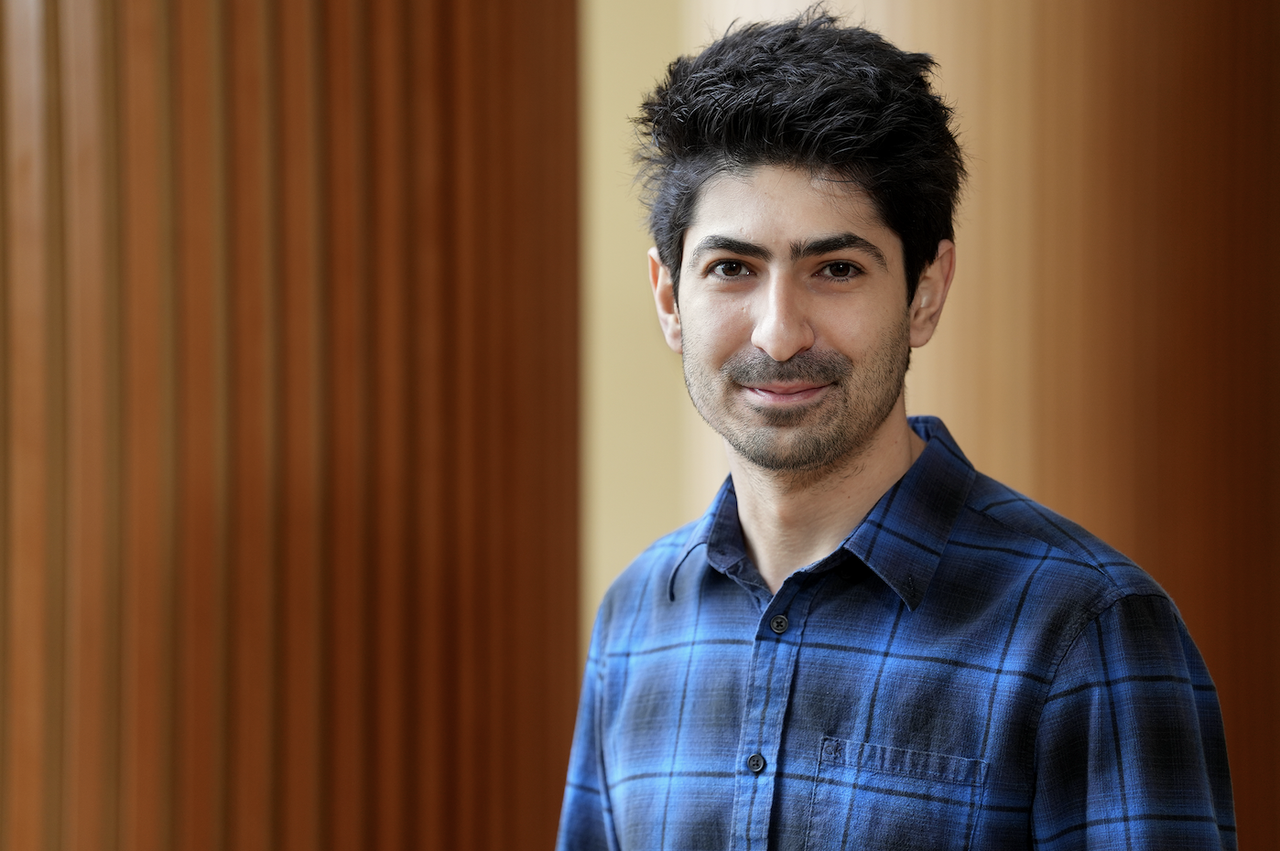News

03 April 2025
Does a cell’s “type” define its function?
A recent article co-authored by Stowers Investigator reviews current neurobiology research to highlight and foster scientific discussion.
Read Article
B.S., Molecular Biology and Genetics, Bilkent University
Ph.D., Neuroscience, University of Texas Southwestern Medical Center

I love the intellectual freedom that comes with foundational research. I have always been fascinated by the brain and its marvelous complexity. We are trying to uncover its secrets to benefit humanity.
Research Areas
Development and Regeneration, Genetics and Genomics, Molecular and Cell Biology, Neuroscience, Systems Biology
Courses Taught
Neuroscience; Laboratory Rotation; Thesis Laboratory
Honors
NIH Pathway to Independence Award (K99/R00)
SfN Peter and Patricia Gruber International Research Award
Leon Levy Neuroscience Fellowship
Neşet Özel, Ph.D., a neuroscientist, will join the Stowers Institute in the fall of 2023 as an Assistant Investigator. Özel’s research combines genetics, imaging, single-cell genomics, and computational modeling approaches to understand the fundamental molecular mechanisms that control brain development in Drosophila.
Özel was raised in Ankara, Turkey and completed his B.S. in molecular biology and genetics at Bilkent University. He studies the development of fruit fly (Drosophila) brains, a nervous system whose cell-type diversity and connectome, or map of neural connections, have been described in detail, providing the ideal balance between complexity and accessibility. As a graduate student in the lab of Robin Hiesinger, Ph.D., first at UT Southwestern in Dallas and then at Freie Universität Berlin, Özel approached this from a cell biology perspective with a focus on long-term live imaging of developing brains that allowed characterization of how filopodial dynamics mediate axon targeting/stabilization and synapse formation in vivo.
Özel joined the lab of Claude Desplan, Ph.D., at New York University as a postdoctoral fellow where he took a different approach to characterize the cell-type specific gene expression programs of more than 200 neuronal cell types in the Drosophila optic lobes using single-cell RNA sequencing throughout development. This enabled him to decipher the combinations of terminal selectors, (i.e., transcription factors) that instruct neuronal identities by virtue of their sustained expression, across their entire circuit. He showed that predictive and complete transformations of one neuronal type into another could be engineered solely by manipulating this code.
The Özel Lab at the Stowers Institute will investigate the gene regulatory networks both upstream and downstream of terminal selectors to predictably alter neuronal identity and connectivity.
News

03 April 2025
A recent article co-authored by Stowers Investigator reviews current neurobiology research to highlight and foster scientific discussion.
Read Article
News
24 September 2024
Four new Principal Investigators recently opened their labs at the Institute. Learn about their research and the impact of their science.
Read Article
News

08 July 2024
The fellowship recognizes scientists who have already contributed valuable research in their field and who demonstrate the greatest promise for future success.
Read Article
Coordinated control of neuronal differentiation and wiring by sustained transcription factors
Özel, M.N., Gibbs, C.S., Holguera, I., Soliman, M., Bonneau, R., and Desplan, C. (2022). Science 378, eadd1884. doi:10.1126/science.add1884.
Neuronal diversity and convergence in a visual system developmental atlas
Özel, M.N., Simon, F., Jafari, S., Holguera, I., Chen, Y.-C., Benhra, N., El-Danaf, R.N., Kapuralin, K., Malin, J.A., Konstantinides, N., and Desplan, C. (2021). Nature 589, 88-95.
A single-nucleus atlas of the adult fruit fly
Li, H., Janssens, J., …. ,Özel, M.N., …. ,Luo, L., Aerts S. (2022). Fly Cell Atlas: Science 375, eabk2432.
A complete temporal transcription factor series in the fly visual system
Konstantinides, N., Holguera, I., Rossi, A.M., Escobar, A., Dudragne, L., Chen, Y.-C., Tran, T.N., Martínez Jaimes, A.M., Özel, M.N., Simon, F., …. , Desplan, C. (2022). Nature 604, 316-322.
Serial Synapse Formation through Filopodial Competition for Synaptic Seeding Factors
Özel, M.N., Kulkarni, A., Hasan, A., Brummer, J., …. , Prohaska, S., von Kleist, M., and Hiesinger, P.R. (2019). Developmental Cell 50, 447-461.e448.
Filopodial dynamics and growth cone stabilization in Drosophila visual circuit development
Özel, M.N., Langen, M., Hassan, B.A., and Hiesinger, P.R. (2015). eLife 4, e10721.